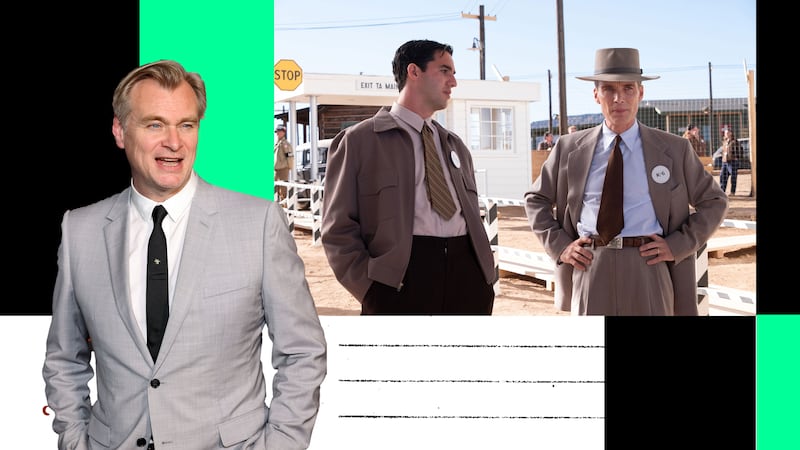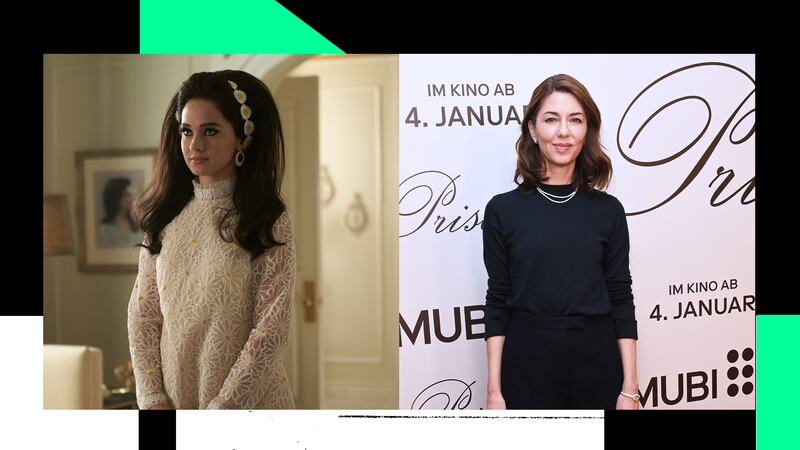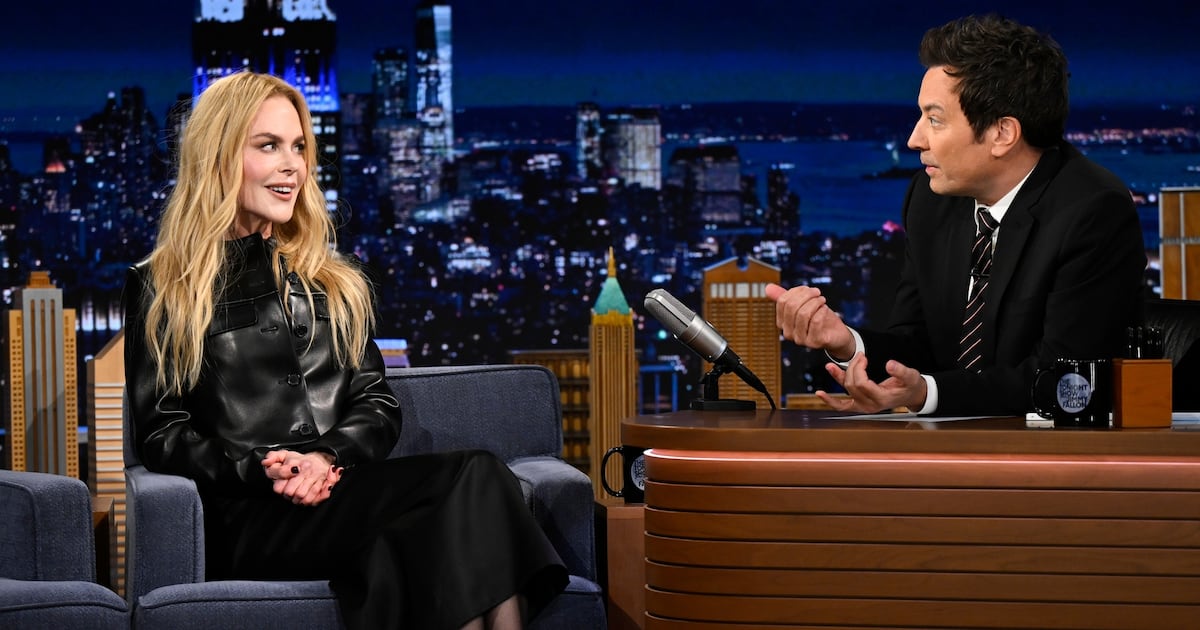While the movie industry has yet to return to pre-pandemic levels, there are signs that a recovery is underway, with total 2023 domestic box-office grosses ($8,362,661,815) already significantly outpacing 2022’s tally ($7,369,505,492). This is particularly impressive, given that studios delayed several major films in response to the Writers Guild and Screen Actors Guild strikes—work stoppages that will likely have greater ramifications for 2024—and many would-be blockbusters (The Flash, Indiana Jones and the Dial of Destiny, Mission: Impossible—Dead Reckoning Part One, The Marvels) underperformed or outright flopped in their multiplex runs courtesy of middling interest and gargantuan budgets.
Despite hardships, the theatrical business seems stronger than it has since the emergence of COVID-19, and as the year winds down, there’s no escaping the easy one-word explanation for this upswing: Barbenheimer.
The July 21 dual premiere of Greta Gerwig’s pinkalicious Mattel fantasia Barbie and Christopher Nolan’s thrilling three-hour biopic Oppenheimer was 2023’s signature film phenomenon, inspiring countless memes, breathless media coverage and repeat moviegoing.
Those two spectaculars—and their pitch-perfect counterprogramming debuts on the same summer day—begat a yin-yang event that reignited our collective domestic cinephilia, in the process racking up a combined $2 billion-plus at the box office and dominating the cultural conversation for months on end. No matter one’s opinion about their artistic merits, they’re the defining releases of the year. And they’re all the more notable for being apex examples of the underlying engine of mainstream and independent film’s resurgence: auteurism.

Christopher Nolan and Oppenheimer.
Photo Illustration by Luis G. Rendon/The Daily Beast/Getty/UniversalWith awards season kicking into gear, the discourse has become almost wholly fixated on iconoclastic directors who’ve used their latest films as expansive and expressive canvases for their own idiosyncratic personalities, preoccupations and styles.
Chief among those is Nolan, whose Oppenheimer is, in form and content, a thoroughly unconventional, subjective-POV drama that challenges rather than coddles. A fractured, interior character study that simultaneously functions as a menacing thriller, prickly political censure, and conflicted historical treatise, it reflects its maker’s fascination with time and space in every one of its IMAX-sized frames. The fact that Oppenheimer has so far racked up $951 million globally makes it one of the medium’s all-time unlikely mega-smashes.
Nolan is at the head of a pack of artists who’ve made their own distinctive marks on 2023. In the U.S. alone, auteurs have been the constant talk of the proverbial town. Martin Scorsese earned huzzahs for his Osage Nation crime epic Killers of the Flower Moon. Wes Anderson hit a career high note with the star-studded Asteroid City.
Sofia Coppola tackled the tale of Priscilla Presley and her marriage to the King of Rock ’n’ Roll with Priscilla. David Fincher played caustic assassination games with The Killer. Ari Aster plumbed his manias for the surrealistically nightmarish Beau Is Afraid. Todd Haynes dissected life-imitating-art intricacies with May December. Bradley Cooper delivered biopic pomp and circumstance with Maestro. Michael Mann put the pedal to the metal with the sleek Ferrari. And Alexander Payne crafted his finest effort in nearly two decades with the sweetly funny and melancholic The Holdovers.

Cailee Spaeny as Priscilla Presley in Sofia Coppola’s Priscilla.
Photo Illustration by Luis G. Rendon/The Daily Beast/A24At the same time, there was an influx of unique work from around the world. Yorgos Lanthimos’ wild Poor Things boasted Emma Stone’s best big-screen performance to date. Jonathan Glazer captured evil in all its banality with The Zone of Interest. Emerald Fennell pushed buttons with the sensationalistic Saltburn. Andrew Haigh moistened eyes with his ghostly weepie All of Us Strangers. Justine Triet devised a tantalizing courtroom mystery with Anatomy of a Fall. Christian Petzold once again investigated issues of stasis and transformation with Afire. John Woo returned guns-a-blazing with the dialogue-free Silent Night. And a whole host of additional acclaimed international voices—Aki Kaurismäki with Fallen Leaves, Nuri Bilge Ceylan with About Dry Grasses, Cristian Mungiu with R.M.N., brothers Jean-Pierre and Luc Dardenne with Tori and Lokita, Hirokazu Kore-eda with Monster—further contributed to the rousing auteurist chorus.
To be sure, IP-based tentpoles continued to rule the U.S. charts; the top five for the year currently includes films about a toy (Barbie) and a video game (The Super Mario Bros. Movie) as well as two superhero sequels (Spider-Man: Across the Spider-Verse and Guardians of the Galaxy Vol. 3). That said, only Nintendo’s animated feature was a traditional endeavor; Spider-Man: Across the Spider-Verse (co-written by Phil Lord and Chris Miller), Gerwig’s Barbie, writer/director James Gunn’s Guardians of the Galaxy Vol. 3, were works steeped in their stewards’ hallmarks. Even Taylor Swift’s triumphant Taylor Swift: The Eras Tour ($178 million and counting) spoke to audiences’ desire for peerless personality. Meanwhile, long-running franchises and formulaic studio offerings floundered—literally with The Little Mermaid, and figuratively with Transformers: Rise of the Beasts, Fast X, and Ant-Man and the Wasp: Quantumania.
The movies people cared most about weren’t extravaganzas cut in customary molds by for-hire helmers; they were the creations of original and inimitable minds. This doesn’t, of course, guarantee that the future will be spearheaded by auteurs; in an industry this enormous, familiarity sells and risk is always unwelcome. Still, if 2023 has proven anything, it’s that how cinema distinguishes itself from its streaming-television competition—a growing threat that looms larger by the day: by taking big swings with singular artists who are more interested in carving out new creative paths than merely traversing well-trod terrain.
There’s unquestionably peril to that course; after all, few of the aforementioned titles have made hand-over-fist-style money. Yet even if they aren’t primed to be billion-dollar bonanzas, such works establish the theater—and the filmgoing experience—as the center of the pop-cultural universe. They make the movies matter, fostering a rising tide that raises all ships.
A glance at 2024’s big-budget slate, stacked as it is with ho-hum sequels and series extensions that (Furiosa and Deadpool 3 aside) fail to ignite the imagination, suggests that Hollywood hasn’t quite grasped this reality. And to be fair, studios won’t be able to replicate the lighting-in-a-bottle sensation of Barbenheimer. However, the industry can reclaim its spot at the top of the entertainment world—and stem the departure of so many celebrated actors, writers, and directors to TV, where opportunities keep flourishing at an exponential rate—by empowering unorthodox visionaries instead of just cautiously revisiting the never-ending-franchise well.






